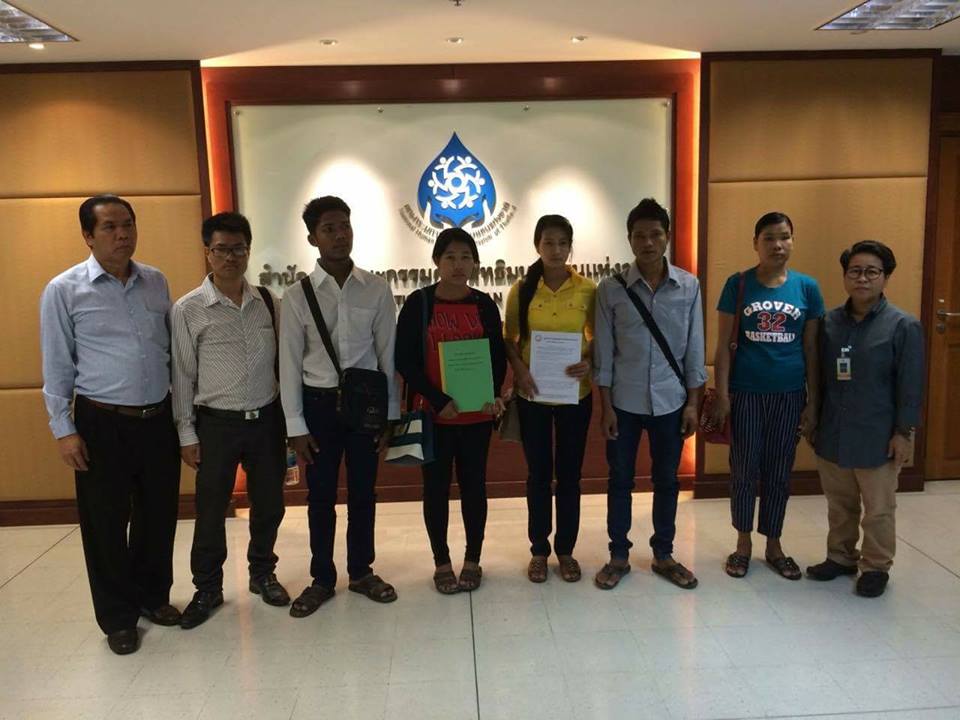Nearly two months after Burmese migrant workers employed by a poultry farm in Thailand’s Lopburi Province came forward with allegations that they had been subjected to slave-like conditions, the country’s leading labour and poultry industry associations are set to sign new guidelines governing labour practices.
Two Thai government departments — the Department of Labour Protection and Welfare and the Department of Livestock Development — will sign a Memorandum of Understanding (MoU) today with the Thai Broiler Processing Exporters Association, in a development seen as a response to a case that has attracted international attention.
The agreement signed at the Ministry of Labour in Bangkok comes as 14 poultry farm workers who worked at Thammakaset Farm 2 in Lopburi continue their fight for full compensation for unpaid overtime worked over the past four years, allegedly while working under conditions described as “modern slavery”.
The Migrant Workers Rights Network (MWRN), an advocacy group that has been representing the 14 Burmese workers, said it welcomed the move but called it long overdue.
“They had promised this a year ago and it is only because of the public pressure now that we have a strange situation where the industry is denying these abuses but at the same time they are developing good labour practices,” said MWRN international representative Andy Hall.
Thailand’s Department of Labour Protection and Welfare investigated the case earlier this month but the department’s director-general, Pannee Sriyudhsak, said the alleged mistreatment of the workers did not involve human trafficking, and it was found the workers and their boss had different views about the overtime and holiday payments.
An order to the employers to pay overtime and holiday payments based on the work from 1-24 June was issued, but Hall says the 1.7 millon baht (US$49,000) compensation offered to the 14 workers is far less than the original amount they were demanding.
“[Pannee] said it was not a case of human trafficking and that the workers’ documents were not confiscated and they were not overworked. She said it was just a labour dispute, which is absolutely ridiculous,” said Hall, speaking to DVB on Friday.
According to Hall, one of the main criticisms of the labour department’s decision is that the compensation does not include overtime pay for work between 7 and 8am, 7 and 8pm, and 10pm and 3am. It also only covers a two-year period, even though some workers say they were at the farm for almost five years.
“The workers insist they worked up to 11 hours overtime per day and the government only awarded them two or four hours a day, so we completely disagree with that and we think it is unlawful,” said Hall.
MWRN said it plans to appeal the labour department decision on 2 September on the grounds that the employer was not ordered to pay interest “because he was willing to comply with the Labour Protection officials,” said Hall, who added that MWRN will also launch a civil lawsuit claiming up to 1 million baht per year for each worker involved in the case.
[related]
Over the past two weeks, the 14 workers have started new jobs with support from the Thai Tuna Industry Association. Originally, they wanted to return to Burma, but now they say they will remain in Thailand to wait for their full compensation claim.
“The Thai Tuna Industry Association acknowledges that these workers were abused within their supply chain, so they are willing to accept their responsibility on this issue, but Betagro and the Thai Chicken Association is refusing to do anything, so this is very poor corporate conduct,” said Hall, referring to one of the main buyers of chicken supplied by the Thammakaset Farm.



